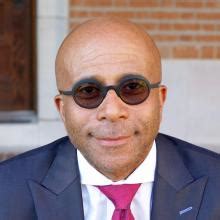A Quote by James Q. Wilson
Police ought to protect communities as well as individuals.... Just as physicians now recognize the importance of fostering health rather than simply treating illness, so the police - and the rest of us - ought to recognize the importance of maintaining, intact, communities without broken windows.
Related Quotes
If ever we needed in this country to adopt a new attitude towards homosexuality, this is the time. Instead of treating it as a crime, and driving it underground, we ought to recognize it for what it is: it's a mental illness, it's a psychiatric condition which ought to be treated sympathetically by psychiatrists and social workers.
Here's what I learned as a mayor and a governor. The way you make communities safer and the way you make police safer is through community policing. You build the bonds between the community and the police force, build bonds of understanding, and then when people feel comfortable in their communities, that gap between the police and the communities they serve narrows. And when that gap narrows, it's safer for the communities and it's safer for the police.
You build the bonds through the community and police force, build bonds of understanding, and then when people feel comfortable in their communities, that gap between the police and the communities they serve narrows. And when that gap narrows, it's safer for the communities and it's safer for the police.






























